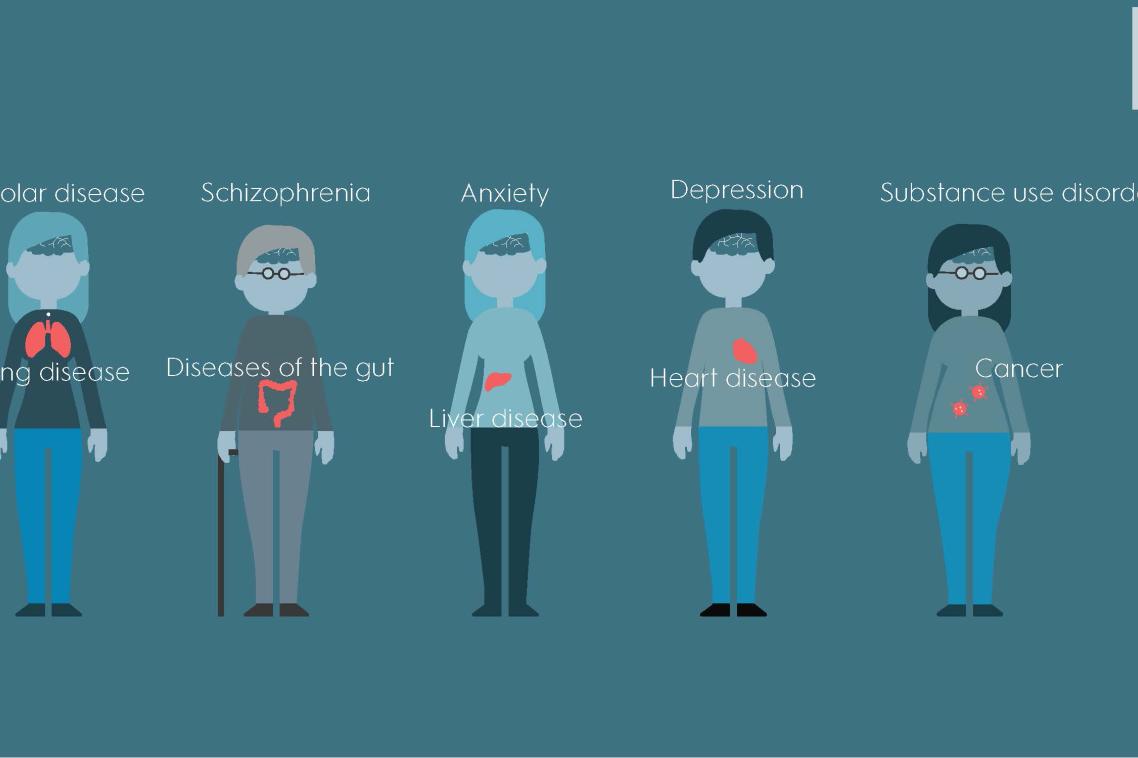Mapping health risks for people with mental disorders

Researchers now have the ability to map the risks of general medical conditions such as heart and lung diseases, diabetes and cancer for people with mental disorders.
A University of Queensland study has revealed that people with mental disorders are many times more likely to develop other health conditions, highlighting the need to provide them with better medical care.
Professor John McGrath, from UQ’s Queensland Brain Institute and Denmark’s Aarhus University, led an international team of researchers aiming to draw more attention to the fatal consequences of mental disorders, beyond suicide.
“We found that women with anxiety disorders have a 50 per cent increased risk of developing a heart condition or stroke — over 15 years, one in three women with anxiety disorders will develop these medical disorders,” Professor McGrath said.
“We also looked at men with substance use disorders such as alcohol-related disorders and found they have a 400 per cent increased risk of gut or liver disorders, while over 15 years, one in five of them will develop gut or liver conditions.”
The researchers have developed a website where relative and absolute risks of medical conditions can be explored, depending on sex, types of mental disorder, age of mental disorder diagnosis and time since mental disorder diagnosis.
Professor McGrath said the work was prompted by a previous study that identified a higher mortality rate for people with mental disorders, partly attributed to suicide, but mostly from general medical conditions.
“We need to provide better medical care to people with mental disorders because if we can treat these medical conditions early, we should be able to reduce the mortality gap,” Professor McGrath said.
“The best way to reduce the premature mortality is for GPs, mental health clinicians and people with mental disorders to work more closely together in order to monitor the general health of people with mental disorders.
“For those of us with mental conditions, we need to take especially good care of our physical health; watch our weight, exercise, and when we see our GP, ask for checks of our general health, such as our blood pressure and lipid levels, not just the mental disorder.”
The research is published in the New England Journal of Medicine, and studied 10 broad types of mental disorder and nine broad categories of medical conditions in 5.9 million individuals born in Denmark between 1900 and 2015.
Media: Professor John McGrath, j.mcgrath@uq.edu.au; QBI Communications, communications@qbi.uq.edu.au, 0405 661 856.
Topics
Related articles

Australia needs doctors – so why are hundreds of qualified international physicians unable to work?

Greater attention needed on community service workforce
Media contact
UQ Communications
communications@uq.edu.au
+61 429 056 139
